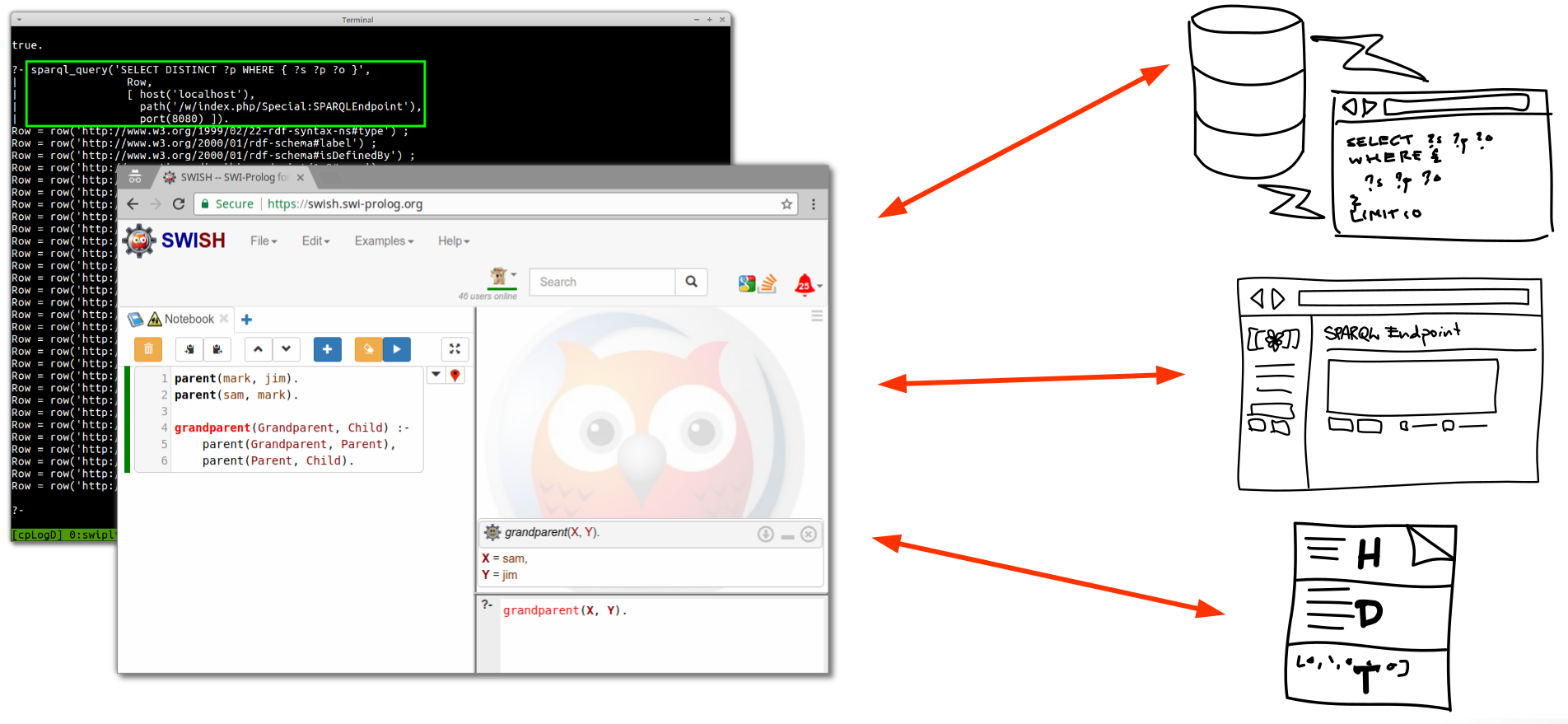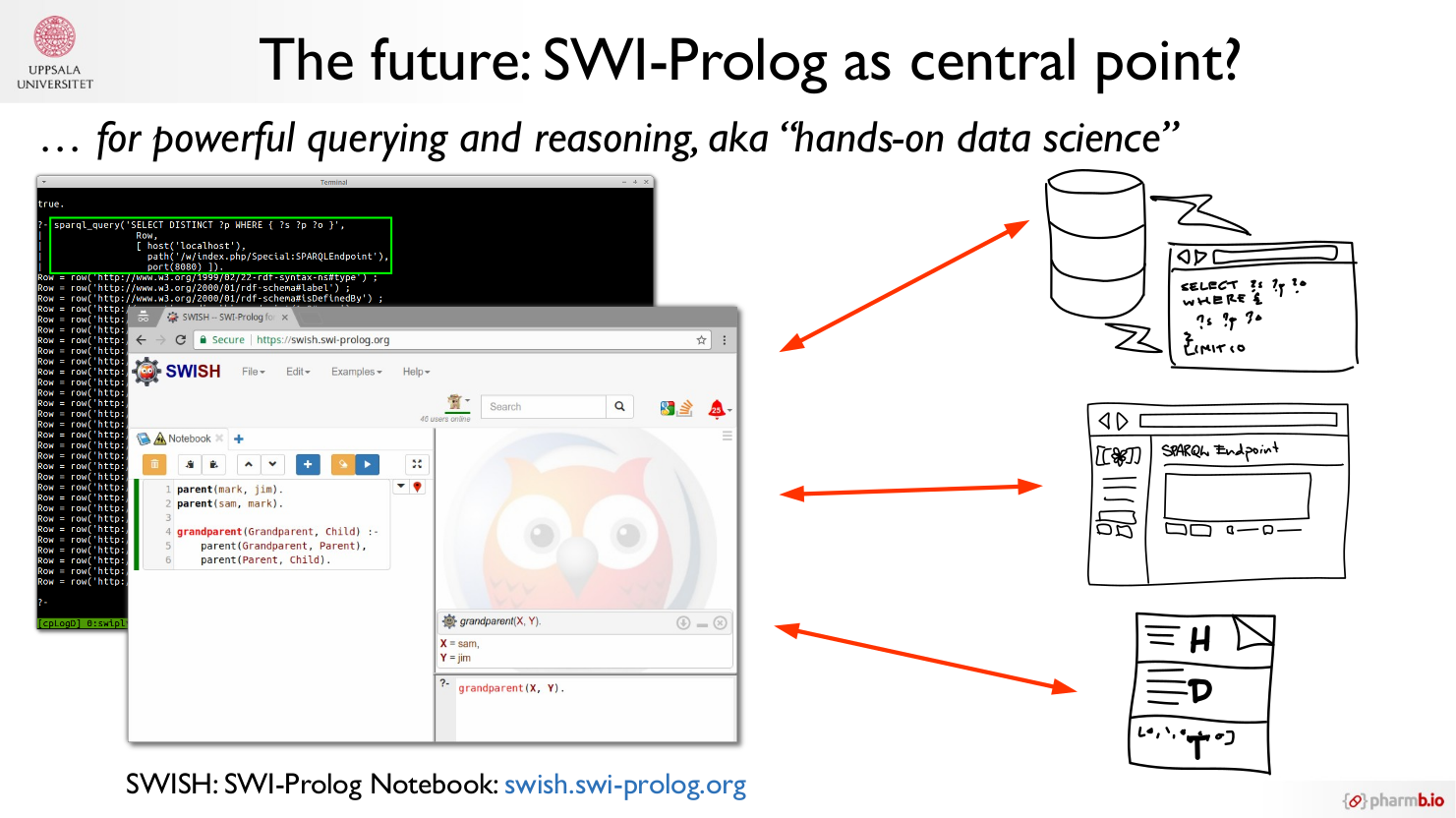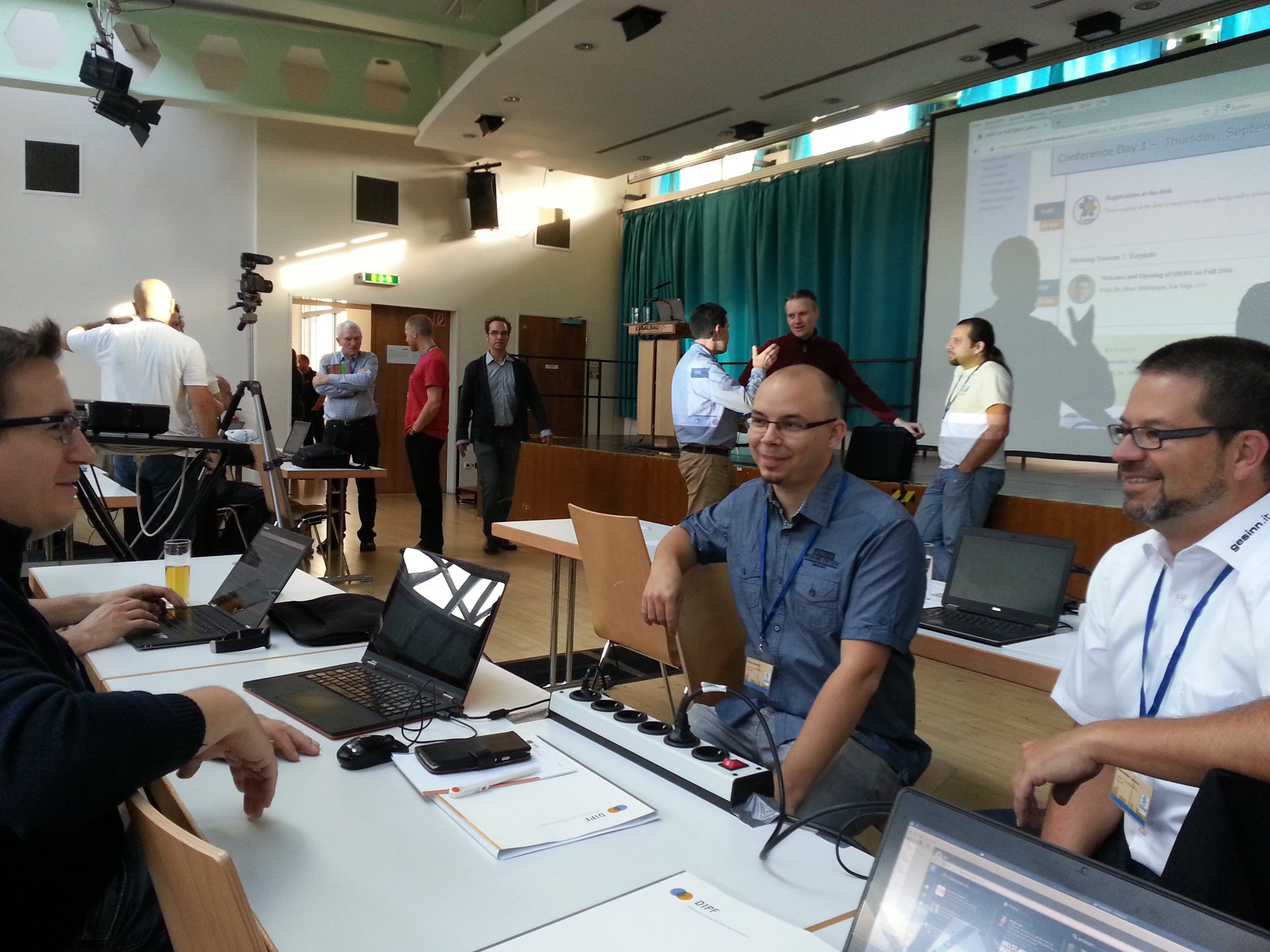
This is an excerpt from the “future outlook” section of my thesis titled “Reproducible Data Analysis in Drug Discovery with Scientific Workflows and the Semantic Web” (click for the open access full text), which aims to provide various putative ways towards improved reproducibility, …

During the last months, I have had the pleasure work together with Matthias Palmér (MetaSolutions AB ) and Fernanda Dórea (National Veterinary Institute ), to prepare for and organize this year’s version of the annual Linked Data Sweden event , which this year was held in Uppsala hosted by the SciLifeLab Data …
At pharmb.io we are researching how to use semantic technologies to push the boundaries for what can be done with intelligent data processing, often of large datasets (see e.g. our paper on linking RDF to cheminformatics and proteomics , and our work on the RDFIO software suite ). Thus, for us, RDFHDT opens new …

I was invited to give a talk at Semantic MediaWiki (SMW) conference in Frankfurt last week, on our work on enabling import of RDF datasets into SMW . I have presented at SMWCon before as well (2011: blog , slides video , 2013: slides ), so it was nice to re-connect with some old friends, and to get up to date about how …
There are lots of things that can’t be answered by a computer from data alone. Maybe the majority of what we humans perceive as knowledge is inferred from a combination of data (simple fact statements about reality) and rules that tell how facts can be combined together to allow making implicit knowledge …


